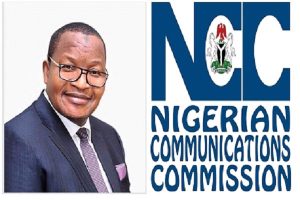Telecom
NCC Clears Air about Mass Disconnection of Telecom Subscribers
Nigerian Communications Commission (NCC) said that it’s has been drawn to numerous publications in both print and electronic media regarding the unfounded fears of mass disconnection of telephone subscribers as a result of the ongoing linkage of SIM Registration Records with the National Identity Number (NIN).

Prof Umar Danbatta, EVC, NCC
Dr. Ikechukwu Adinde, director, Public Affairs, NCC, in a statement noted that it is therefore necessary for the Commission to issue this clarification in order to allay the fears of subscribers and the general public.
He said that most of these publications are based on the erroneous assumption that for every network or SIM connection, there is one unique human subscriber.
“However, with the advent of social media and App-driven digital environment, network subscription went beyond human subscribers to include machines like PoS, Routers, Wi-Fi devices, electricity meters, CCTV, tracking devices etc.
“A recent survey conducted in Nigeria has shown that on average, there are now approximately 4 to 5 SIMs to every human subscriber. This explains the basis of allowing the linkage of up to 7 SIMs to 1 unique NIN in the recently launched Federal Government Portal.
“Thus, if there are 43 million Nigerians with NINs, this could account for about 172 million SIMs already linked to NINs. It is very important to emphasize that the current exercise of linking NIN to SIM(s) is for the common good of all Nigerians, as it has far reaching benefits.
“Apart from enhancing our general safety, this will help in such vital exercises like National Budgeting, Policy Planning, Social Intervention programs and many more” Adinde, added.
He said that the minister of Communication and Digital Economy has assured that the Government will continue to review the exercise in the light of experiences to ensure its smooth implementation.
“We call on all our media partners, publishers and reporters to always endeavour to seek clarification from the Commission before going to the press, especially on sensitive issues:” Adinde stated
Telecom
Airtel Laments 300 Percent Increase in OPEX. Backs Tariff Review
Airtel Nigeria has said the telecom operators could not go on without tariff adjustment as the cost of operation has gone up by 300 percent.

According to Dinesh Balsingh, chief executive officer of the company, the call for the upward review of tariffs in the telecom sector has to be honoured of the operator must do their business in the country without many problems.
Balsingh, who stated this in an op-ed, said the adjustments are critical for maintaining high-quality services and enabling further advancements in Nigeria’s digital transformation journey.
“For over a decade, tariffs have remained static despite the dramatic increase in operating expenses, which have surged by over 300% in the last 18 to 24 months alone.
“To continue providing high-quality services and meeting the growing demand for digital connectivity, it has become essential to realign our pricing structure with economic realities,” Balsingh said.
The Airtel CEO also underscored the significant investments required to maintain and expand telecom infrastructure, which is pivotal to supporting Nigeria’s digital economy.
“The increasing demand for digital services across sectors such as education, banking, and healthcare requires us to continually upgrade our networks to deliver more capacity and improve service quality.
“These investments come at a cost, one that must be shared proportionally to guarantee long-term viability,” he said.
Telecom
Telecom Consumers to Gain from Tariff Update as Airtel Nigeria Prioritizes Enhanced Services
As conversations intensify around tariff adjustments in Nigeria’s telecommunications sector, Airtel Nigeria CEO Dinesh Balsingh has reaffirmed the telecom giant’s commitment to delivering superior connectivity and fostering digital inclusion.

In response to the economic realities of rising operational and capital costs, Balsingh noted that the proposed tariff adjustments aim to ensure the long-term sustainability of the sector while unlocking significant benefits for Nigerian consumers.
In an op-ed authored by Balsingh in which he contextualized the necessity of the tariff adjustments, he explained that “For over a decade, tariffs have remained static despite the dramatic increase in operating expenses, which have surged by over 300% in the last 18 to 24 months alone.
“To continue providing high-quality services and meeting the growing demand for digital connectivity, it has become essential to realign our pricing structure with economic realities.”
Balsingh further highlighted the substantial investments required to maintain and expand telecommunications infrastructure. “The increasing demand for digital services across sectors such as education, banking, and healthcare requires us to continually upgrade our networks to deliver more capacity and improve service quality. These investments come at a cost, one that must be shared proportionally to guarantee long-term viability,” he observed.
The proposed tariff adjustments will not only ensure the sector’s sustainability but also bring significant improvements to service delivery, adding: “By enabling us to expand coverage, strengthen network security, and introduce cutting-edge technologies, the adjustments will directly enhance the quality of connectivity for Nigerians.
“Our priority is to ensure that no one is left behind in the country’s digital transformation journey.”
Balsingh emphasized that these adjustments will be implemented with affordability in mind, ensuring minimal impact on consumers. The company remains steadfast in its commitment to supporting Nigeria’s vision of becoming a digital economy leader in Africa, empowering businesses, driving innovation, and fostering inclusive growth.
“Our commitment to quality service remains unwavering,” said Balsingh. “While significant tariff adjustments have become necessary, we understand the importance of gradual implementation to support our customers’ financial positions.
“This step will enable us to invest in capacity, expand coverage, and enhance service delivery, ensuring Nigeria remains competitive in the global digital landscape.”
Telecom
Firm Highlights Skills Development to Drive Data Center Expertise and Sustainability
The integration of modern technologies has introduced both challenges and opportunities for the data center workforce. Over the past 15 years, the evolution from finance-focused IT applications to edge computing on the cloud has transformed the industry, steering data centers toward a more distributed IT model.

Today, the emphasis is on sustainability, and selecting the right certifications is pivotal for career development in various roles, ranging from data center design to networking and security.
Ben Selier, Vice President of Secure Power for Anglophone Africa at Schneider Electric, emphasizes the need for strategic skills development, noting that, “Training and certifications in data centers have traditionally focused on IT-related and non-IT-related roles. With the industry shifting towards sustainability and smart technologies, the need for relevant certifications has never been greater.”
The shift to the Internet of Things (IoT), artificial intelligence (AI), and smart applications has fueled the digital economy but has not been matched by the growth of a skilled workforce. Specialized IT professionals, previously experts in fields like finance software, face the challenge of rapidly outdated skills.
“The adoption rate of technologies like AI—reaching 1,000 million users in just two months compared to the World Wide Web’s seven years—highlights the pressing skills gap in areas such as cooling and power specialization,” Selier explains. Companies are struggling to train or hire fast enough to meet the demand, exacerbating operational issues within data centers.
Modern technologies offer significant competitive advantages, but Selier warns of the challenges: “Attracting and recruiting skilled technicians, engineers, and operators has become a critical priority for the industry. Without proper investment in training, the shortage of qualified staff could hinder growth and innovation.”
Certifications remain a cornerstone for building expertise in the rapidly changing data center landscape. Schneider Electric has been proactive in addressing this need through its Schneider Electric University and comprehensive training services. “Our programs are designed to bridge the knowledge gap, enabling professionals to gain the latest competencies quickly,” Selier notes.
Flexible training plans have also been introduced to meet immediate demands, allowing companies to collaborate with data center partners for temporary solutions while their teams undergo certification. The EcoXpert™ Partner Program, which initially focused on IT solutions, has been expanded to include sustainability certifications for roles such as cooling specialists and systems integrators.
“The program reflects the growing need for sustainability-specific training, empowering partners to adopt innovative technologies in data center design and operations,” Selier explains. The initiative is designed to educate and create opportunities for collaboration across industry.
The rise of AI, cloud, edge computing, and IoT has disrupted traditional data center operations, making advanced certifications essential for career growth. Certified EcoXpert partners gain expertise in areas such as power distribution, grid management, and new energy landscapes.
“Acquiring skills in emerging technologies not only breaks traditional constraints but also propels the career trajectory of data center professionals,” Selier asserts. The expanded EcoXpert program is tailored to meet the evolving needs of individuals and organizations, fostering collaboration and innovation in critical infrastructure.
He concludes with the statement, “The future of the data center industry depends on our ability to develop talent, embrace sustainability, and invest in skills that meet the demands of a rapidly evolving landscape.”

 News1 day ago
News1 day agoWHO Declares New COVID Outbreak in China Global Health Emergency

 News1 day ago
News1 day agoSpaceX Announces Starship’s First Satellite Deployment Test

 Telecom1 day ago
Telecom1 day agoSubscribers’ Group Threatens to Sue Telcos over Proposed Tariff Hike

 E-Business1 day ago
E-Business1 day agoMicrosoft to Boost AI Growth with $80Bn Investment

 News1 day ago
News1 day agoZinox Demands Apology from Falana over Alleged Defamation, Reputational Damage

 Telecom1 day ago
Telecom1 day agoFirm Highlights Skills Development to Drive Data Center Expertise and Sustainability

 E-Financial1 day ago
E-Financial1 day agoSEC to Intensify Crackdown on Ponzi Schemes this Year

 News1 day ago
News1 day ago21 Bank Accounts Frozen by Abuja Court Over Alleged Money Laundering






















